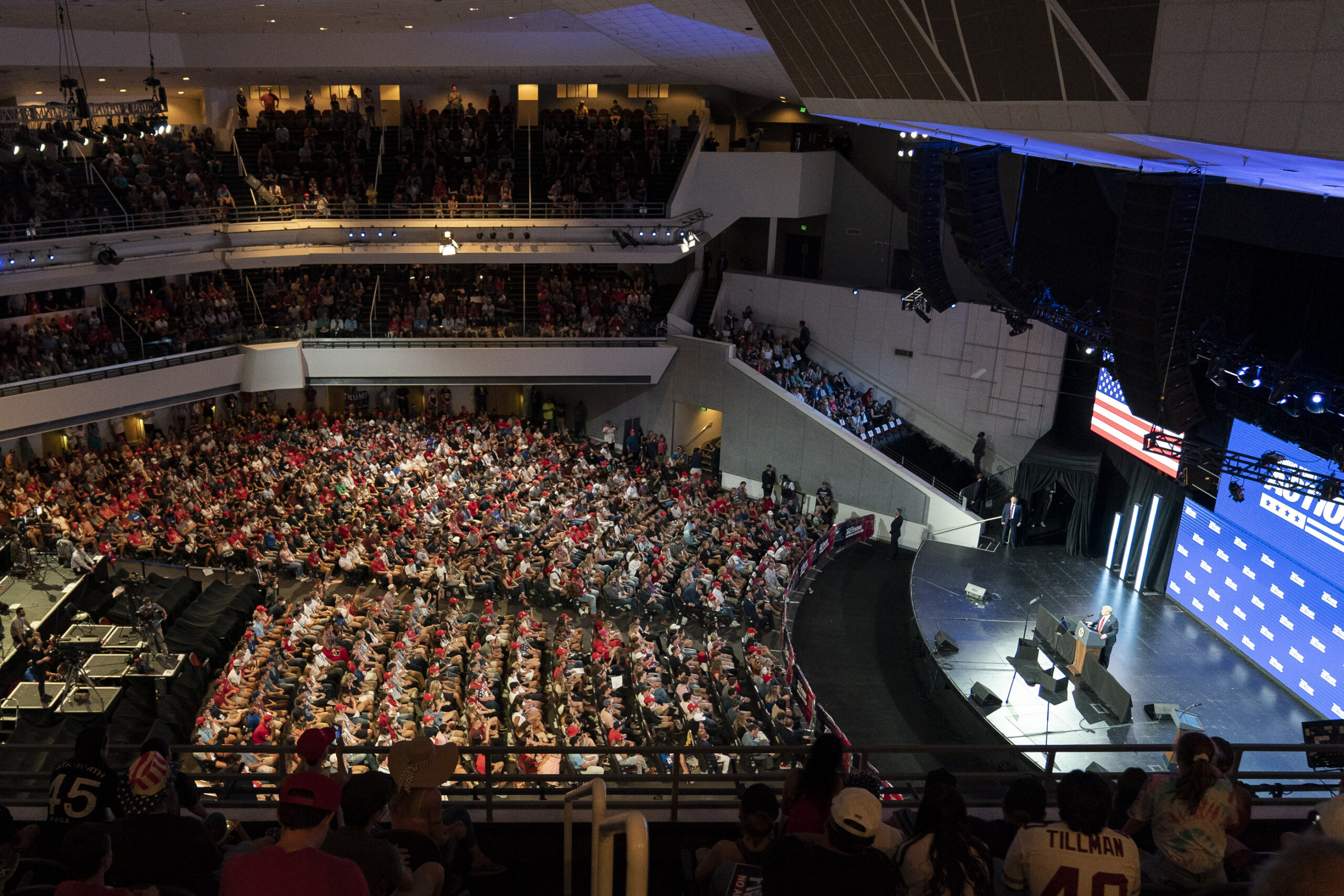Investigations Update: Family Separation, Unmarked Law Enforcement, and Trump’s Campaign Rallies
Here’s a look at the investigations our team has been pursuing through public records requests and Freedom of Information Act litigation in the last week.

Here’s a look at the investigations our team has been pursuing through public records requests and Freedom of Information Act litigation in the last week:
New Family-Separation Lawsuit: We filed a lawsuit against the Department of Homeland Security and Immigration and Customs Enforcement for policy memos concerning family separation. Such memos had been referenced in an email sent by former ICE Chief of Staff Thomas Blank in January 2019, in records we obtained through a FOIA request.
Unmarked Law Enforcement at Protests: Trump has called upon several federal law enforcement agencies to control protests against police brutality, with uniformed officers across the country having responded to the protests with aggressive tactics. In Washington, D.C., unmarked officers refused to identify themselves, prompting several members of Congress to craft legislation that would require federal officers to show identifying markings. We filed FOIA requests with multiple agencies for directives or guidance given to federal police forces regarding self-identification, as well as use-of-force guidelines and any deployment orders related to the recent protests. We also filed a request with the Defense Intelligence Agency for directives and reports regarding the protests.
USDA Food Relief Contracts: In May, the Department of Agriculture announced the Farmers to Families Food Box program, which awards $1.2 billion in federal contracts for the packaging and distribution of food purchased by the USDA. The program is meant to offset the impacts of the economic crisis caused by the Covid-19 pandemic, but lawmakers have raised concerns about the program’s contract bidding process and the unequal distribution to different parts of the country. We asked USDA for communications and guidance concerning the program.
State Department Inspector General Firing Lawsuit: On Friday, we sued the State Department for documents related to last month’s firing of Inspector General Steve Linick — and the investigations he had reportedly opened into the conduct of Secretary of State Mike Pompeo, who had pushed the president to fire Linick. In testimony given to the House on June 3, Linick confirmed that he had notified multiple Pompeo aides to the existence of the investigation — seriously damaging the credibility of Pompeo’s claim that he was unaware of the investigation at the time of Linick’s firing.
Pompeo’s Meetings with Conservative Donors: We’ve also been investigating Pompeo’s conduct and alleged misuse of taxpayer-funded agency resources, including his visits to political donors on State Department trips, including billionaire Charles Koch. We filed a new FOIA request with the State Department for communications between Pompeo’s staff and non-government organizations and individuals.
USAID Asks to Remove Language in UN Response Plan: In May, John Barsa, the new acting administrator of the U.S. Agency for International Development, asked the United Nations secretary-general to “remove references to ‘sexual and reproductive health,’ and its derivatives,” including references to abortion, from the UN’s Covid-19 Global Humanitarian Response Plan. We filed FOIA requests with the State Department and USAID for communications related to Barsa’s letter to the UN. We’re also seeking Barsa’s calendars and sent emails, as well as the calendars and communications of USAID Assistant Administrator Michelle Bekkering and Senior Adviser Bethany Kozma.
“VIP” Covid-19 Emergency Supplies List: According to reports, White House Senior Adviser Jared Kushner’s volunteer supply chain task force kept a “VIP” list of tips about medical equipment that came from Trump allies — a list that did not turn out to be particularly helpful. We filed FOIA requests with the Defense Department and the Department of Homeland Security for those VIP lists.
Trump Campaign Rally Public Health Analyses: Despite warnings from health experts, Trump returned to the campaign trail this month in the middle of the pandemic, starting with a controversial rally in Tulsa, Okla. He’s since visited Arizona and plans to travel to Florida and North Carolina even after eight of his campaign staffers tested positive for coronavirus after the Tulsa rally. Reporting suggests the campaign has been disregarding safety precautions set by venues, and that many attendees are not wearing masks. We asked state health agencies in Arizona, Florida, North Carolina, and Oklahoma for assessments or analyses concerning the impacts of hosting a Trump rally during the pandemic. We also asked the Tulsa Health Department for county public health assessments regarding the recent rally.
Loeffler and Inhofe Insider-Trading Probe: Back in January, Georgia Sen. Kelly Loeffler and Oklahoma Sen. Jim Inhofe sold large quantities of stock in companies potentially affected by the coronavirus shortly after attending a private briefing on the pandemic. The Justice Department and the Securities and Exchange Commission launched investigations into the stock sales, but as of May 26, the Justice Department has dropped its probes into Loeffler and Inhofe. We filed FOIA requests with the SEC and the Justice Department for email communications of high-ranking agency officials regarding the now-closed probes.
State Accountability Project: American Oversight continues to monitor threats to voting rights at the state level with our State Accountability Project. Last week, we filed records requests in multiple counties in Texas for communications with voting-restriction advocates and conservative groups such as True the Vote and Direct Action Texas. As part of our investigation into outside interference in New Hampshire redistricting, we asked the New Hampshire secretary of state’s office, attorney general, and governor’s office for records related to election preparation, communications with voting-restriction advocates, and documents about funding to support election operations in the middle of the Covid-19 outbreak.